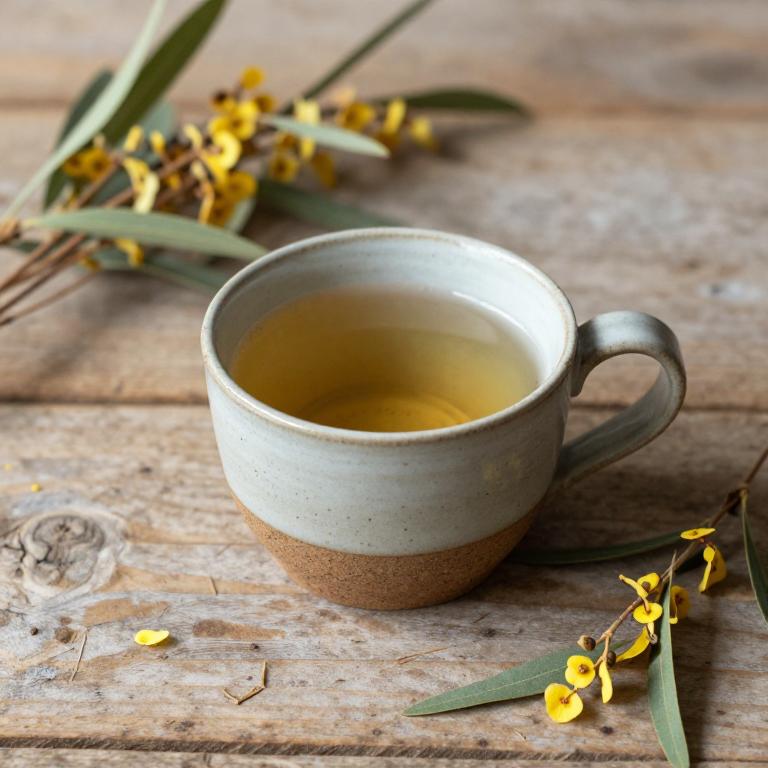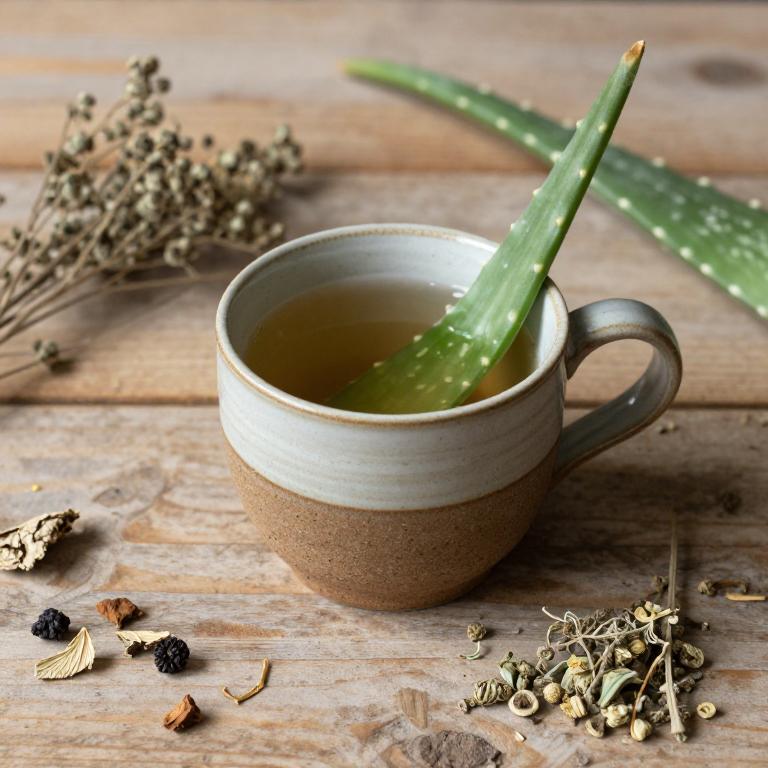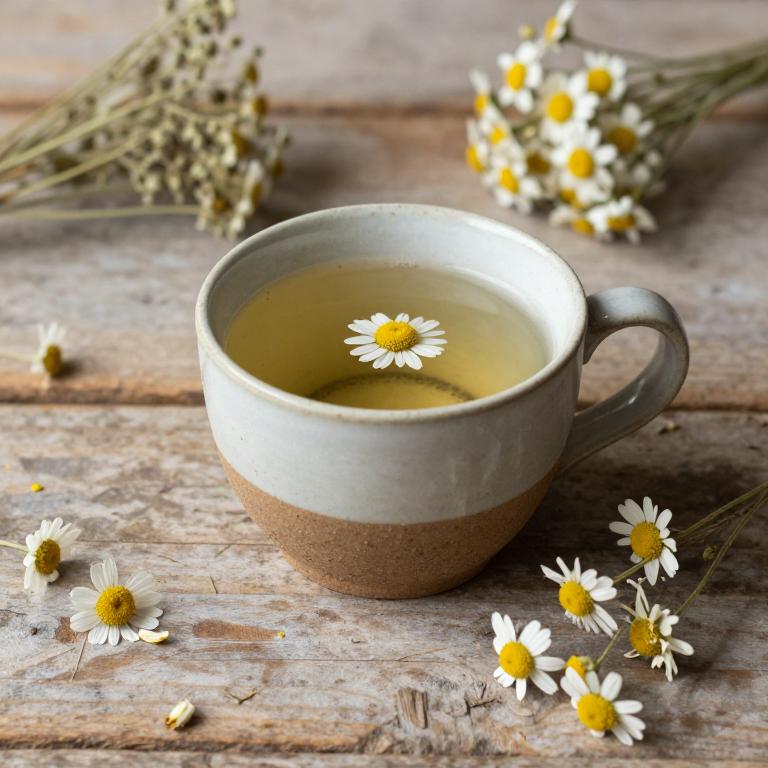10 Best Herbal Teas For Dry Scalp

Herbal teas can be an effective natural remedy for a dry scalp, offering soothing and nourishing benefits without the harsh chemicals found in many commercial treatments.
Teas such as chamomile, nettle, and lavender are commonly recommended for their anti-inflammatory and moisturizing properties, which help to reduce irritation and promote scalp health. To use these teas, simply brew a cup, let it cool, and apply it to the scalp with a clean cloth or spray bottle, then rinse thoroughly. Regular use of herbal tea rinses can help to hydrate the scalp, improve blood circulation, and reduce dandruff.
Incorporating herbal teas into a regular scalp care routine may provide long-term relief and enhance overall hair and scalp vitality.
Table of Contents
- 1. Camellia (Camellia sinensis)
- 2. Field horsetail (Equisetum arvense)
- 3. Stinging nettle (Urtica dioica)
- 4. St. john's wort (Hypericum perforatum)
- 5. Rosemary (Rosmarinus officinalis)
- 6. English lavender (Lavandula angustifolia)
- 7. Melaleuca (Melaleuca alternifolia)
- 8. Salvia (Salvia officinalis)
- 9. Aloe vera (Aloe barbadensis)
- 10. German chamomile (Chamomilla recutita)
1. Camellia (Camellia sinensis)

Camellia sinensis, the plant from which green and black teas are derived, contains compounds that may benefit individuals with a dry scalp.
These compounds, including polyphenols and catechins, have anti-inflammatory and antioxidant properties that can help reduce scalp irritation and improve overall scalp health. Herbal teas made from Camellia sinensis can be used as a soothing rinse after shampooing to hydrate and nourish the scalp. The mild astringent properties of these teas may also help to tighten pores and reduce excess oil, making them suitable for those with dry or sensitive skin.
Regular use of Camellia sinensis herbal teas can contribute to a healthier, more balanced scalp environment.
2. Field horsetail (Equisetum arvense)

Equisetum arvense, also known as horsetail, is a traditional herb often used in herbal teas to address various scalp and skin conditions.
Its high concentration of silica and other minerals makes it particularly beneficial for improving scalp health and alleviating dryness. When brewed into a tea, equisetum arvense can help strengthen hair follicles and promote a healthier scalp environment. Regular consumption of this tea may reduce flakiness and itching associated with dry scalp.
However, it is important to consult with a healthcare provider before incorporating it into your routine, especially if you have underlying health conditions or are taking medications.
3. Stinging nettle (Urtica dioica)

Urtica dioica, commonly known as stinging nettle, is a herb that has been traditionally used for its potential benefits in promoting scalp health.
When brewed into a herbal tea, stinging nettle can help soothe a dry scalp due to its anti-inflammatory and antioxidant properties. The tea is believed to help reduce dandruff and irritation while moisturizing the scalp naturally. To use it for dry scalp, the leaves are typically steeped in hot water and applied as a rinse or consumed internally for internal detoxification.
However, it is important to consult with a healthcare provider before using stinging nettle tea, especially if you have any underlying health conditions or are pregnant.
4. St. john's wort (Hypericum perforatum)

Hypericum perforatum, commonly known as St. John's Wort, is a herbal remedy that has been traditionally used for its soothing and anti-inflammatory properties.
When brewed into a tea, it can be beneficial for individuals suffering from a dry scalp due to its ability to reduce irritation and promote scalp health. The tea is believed to help balance the scalp's natural oils and alleviate symptoms such as itching and redness. To prepare the tea, a teaspoon of dried hypericum perforatum is steeped in hot water for several minutes.
While it may offer relief, it is important to consult with a healthcare professional before use, especially if you are taking other medications, as it can interact with certain drugs.
5. Rosemary (Rosmarinus officinalis)

Rosmarinus officinalis, commonly known as rosemary, is a versatile herb that has been traditionally used for its aromatic and therapeutic properties.
Rosemary herbal teas are particularly beneficial for individuals suffering from dry scalp due to their ability to stimulate blood circulation and promote scalp health. The essential oils in rosemary, such as camphor and pinene, have antimicrobial and anti-inflammatory effects that can help reduce dandruff and itchiness. When brewed as a tea, rosemary can be applied topically or consumed internally to support overall hair and scalp wellness.
Regular use of rosemary herbal tea may help moisturize the scalp, reduce flakiness, and improve the overall appearance of hair.
6. English lavender (Lavandula angustifolia)

Lavandula angustifolia, commonly known as English lavender, is a popular herb used in herbal teas to address various scalp issues, including dryness and irritation.
The essential oils in lavender possess calming and anti-inflammatory properties that can help soothe a dry, itchy scalp. When brewed into a tea, lavender can be applied topically as a rinse or used internally to promote overall scalp health. Its mild, soothing aroma also has a relaxing effect, which can reduce stress-related scalp conditions.
Regular use of lavender herbal tea may help moisturize the scalp, reduce flakiness, and improve the overall texture of the hair.
7. Melaleuca (Melaleuca alternifolia)

Melaleuca alternifolia, commonly known as tea tree oil, is often used in herbal teas to address dry scalp issues due to its antimicrobial and anti-inflammatory properties.
These teas can help soothe irritation and reduce flakiness by gently exfoliating the scalp and improving blood circulation. When brewed properly, the tea can be applied as a rinse after washing the hair, providing a natural and gentle treatment for dry, itchy skin. Its soothing effects make it a popular choice for those seeking a natural alternative to conventional scalp treatments.
However, it is important to dilute the tea properly to avoid any potential skin irritation.
8. Salvia (Salvia officinalis)

Salvia officinalis, commonly known as sage, is a traditional herb that has been used for centuries to promote scalp health and alleviate dryness.
When brewed into a herbal tea, sage can help reduce scalp irritation and soothe inflammation due to its anti-inflammatory and antimicrobial properties. The essential oils in sage leaves may help balance the scalp's natural oils, making it an effective remedy for those experiencing dryness or flakiness. To use sage for a dry scalp, simply steep a few fresh or dried leaves in hot water for several minutes and apply the cooled infusion to the scalp.
Regular use of sage herbal tea can contribute to a healthier, more nourished scalp and may complement other treatments for scalp conditions.
9. Aloe vera (Aloe barbadensis)

Aloe barbadensis, commonly known as aloe vera, is often used in herbal teas to address various scalp conditions, including dryness and flakiness.
The soothing properties of aloe vera help to moisturize the scalp and reduce irritation, making it an effective natural remedy for dry scalp. When brewed into a tea, aloe vera can provide a calming and hydrating effect that supports scalp health. It is typically combined with other herbal ingredients like chamomile or green tea to enhance its therapeutic benefits.
Regular consumption of aloe barbadensis herbal tea may help improve overall scalp hydration and reduce the symptoms of dryness.
10. German chamomile (Chamomilla recutita)

Chamomilla recutita, commonly known as German chamomile, is a popular herbal tea used to soothe various skin and scalp conditions, including dry scalp.
Its calming and anti-inflammatory properties help reduce redness, irritation, and flakiness, providing relief from the discomfort associated with dryness. When applied topically as a rinse or used in a compress, chamomile tea can deeply moisturize the scalp and promote a healthier hair environment. The essential oils in chamomile also have mild antifungal and antibacterial effects, which can help prevent infections that may exacerbate dry scalp issues.
Overall, chamomilla recutita herbal tea is a natural and effective remedy for those seeking relief from dry scalp without the use of harsh chemicals.